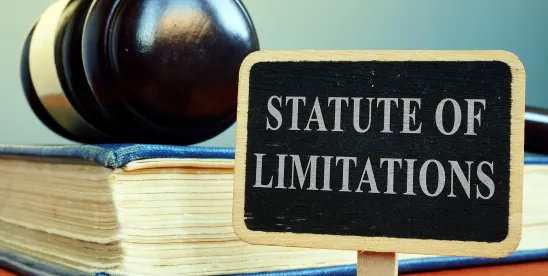In In re Estate of Maun, a brother sued his sister’s estate for her performance as executrix of their mother’s estate since the late 1980s. No. 13-22-00576-CV, 2024 Tex. App. LEXIS 52 (Tex. App.—Corpus Christi January 4, 2024, no pet. history). The trial court entered summary judgment for the defendant based on the statute of limitations, and the plaintiff appealed.
The court of appeals noted that the statute of limitations for a breach of fiduciary duty claim is four years, which can tolled under the theories of the discovery rule and fraudulent-concealment. The discovery rule applies to “cases in which the alleged wrongful act and resulting injury were inherently undiscoverable at the time they occurred but may be objectively verified.” Id. Fraudulent concealment, on the other hand, focuses on the defendant’s improper conduct. “[W]hen a defendant has fraudulently concealed the facts forming the basis of the plaintiff’s claim, limitations does not begin to run until the claimant, using reasonable diligence, discovered or should have discovered the injury.” Id.
The court of appeals affirmed the summary judgment on limitations, and held that the plaintiff should have discovered his claims at least four years before he filed suit:
To start, Mark should have known something was amiss when Debora filed the 1989 inventory but failed to include the three duplexes or the coin collection. Mark testified that he knew these assets were part of his father’s estate at the time of his death, yet he took no action to challenge the accuracy of the inventory. The next indication that Debora was mismanaging the estate came when Mark never received his share of the nine savings bonds that were listed in the inventory. By 1994, when he finally began receiving his share of the royalty income and rental payments, Mark knew that his sister had also failed to list these assets in the inventory or distribute his share of the revenue since their father’s death in 1985. Faced with this series of troubling facts, Mark never demanded an accounting or sought to remove his sister as the personal representative of the estate. Finally, although the exact date is unclear from the record, Mark also knew that the three duplexes were generating income for the estate more than four years before he filed suit and that he had never received any of this income. Again, he took no action in the probate proceeding to protect his interests.
Id. The court also rejected the plaintiff’s argument that because his sister was a fiduciary that he had no duty to act reasonably to discovery his claims:
Nevertheless, Mark relies heavily on his status as a beneficiary and the fiduciary duties his sister owed him as executrix of the estate. During the summary judgment hearing, Mark’s counsel suggested that it would “turn probate law upside down on its head” to place any obligation on Mark to discover Debora’s misconduct. But even “those owed a fiduciary duty are not altogether absolved of the usual obligation to use reasonable diligence to discover an injury.” “[W]hen the fact of misconduct becomes apparent it can no longer be ignored, regardless of the nature of the relationship.” Therefore, the mere existence of a fiduciary relationship did not excuse Mark from his own obligation to exercise reasonable diligence in discovering his injuries. And under the facts of this case, we cannot say that Mark was “unable to inquire into the fiduciary’s actions or unaware of the need to do so.” To the contrary, Mark was aware of numerous red flags that should have led him to utilize his various rights as a beneficiary to judicially examine his sister’s administration of the estate.
Id. The court of appeals also rejected the fraudulent concealment defense due to the same reasons: “Mark could not justifiably rely on his sister’s representations given everything he already knew about her misconduct.” Id. The court affirmed the summary judgment for the defendant based on limitations.




 />i
/>i
